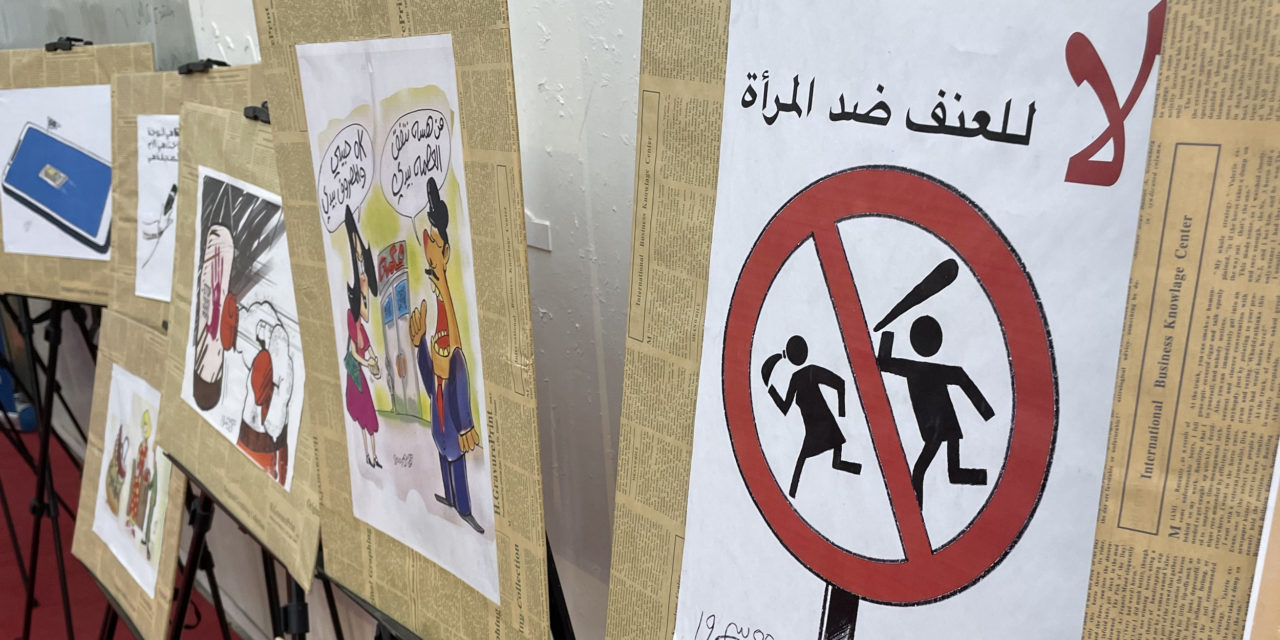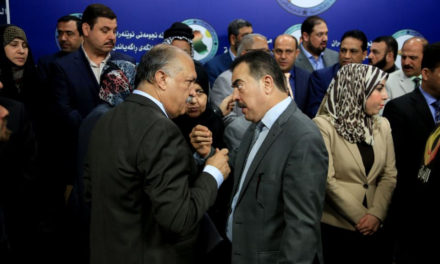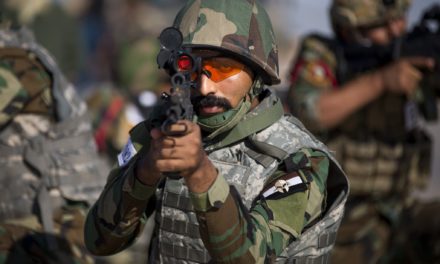In the last few decades, Iraq has suffered from debilitating sanctions, external wars against Iran and Kuwait, invasion by the United States, and the war against ISIS. Internally, there was a sectarian civil war and cycles of mass displacement. These difficult times affected Iraqi women and children in particular ways, including through domestic violence and gender-based violence.
Domestic violence is a broad term that refers to a pattern of behavior in any relationship that is used to gain or maintain power or control over an intimate partner. It may occur in relationships with partners, ex-partners, or among family members, according to the United Nations’ definition.
Domestic violence can be physical, sexual, emotional, or social. Domestic violence can be a type of gender-based violence: the violence directed at a person or group of people because of their gender. According to the International Rescue Commission, “over one-third of women and girls globally will experience some form of violence in their lifetime.” The rate of gender-based violence, in particular, increases in countries that experience conflicts and wars, like Iraq.
My work with NGOs for the past several years has put me in direct contact with women suffering from domestic violence. The more I worked in that field, the more I believed that we have very few solutions to offer. Lots of money is dedicated to serve women’s rights in Iraq by governmental and non-governmental organizations both local and international, but is it directed towards the right path?
Through the many cases I saw during my time working for women’s rights NGOs in Iraq, I saw women of different ages, classes, and backgrounds, all in need of urgent help. Some of the women’s stories were shocking and others’ stories were simple and rather puzzling. In every instance, I wondered, what would we do if we were in their shoes? Below I share some of these stories, with the names changed to protect their identity.
Women need laws that protect all citizens’ rights equally. The Iraqi penal code Article 41 allows husbands to discipline their wives. The article is demeaning and violates human rights, and it is always used to drop physical abuse cases. This article should be repealed.
The Nonfunctioning Hotlines
Sometimes women are in critical situations where their lives are threatened, so they need emergency police interference regardless of the standard protocols (i.e. reporting the assault on a person, showing credentials and documents, etc.). Back in 2017, some of NGOs promoted a hotline to report domestic abuse cases, they claimed that was the fruit of their collaboration with the Ministry of Interior. We tried to call the hotline (440) but it was a non-functioning number that didn’t even ring. It was as though it was made up.
Aya (17) and Esraa (13), two teenaged girls from Basra contacted us after their drunk father locked them in a room and was trying to set the house on fire. We tried the hotline, only to discover it was unregistered, so we called the police instead. After a few questions, the police asked the girls – who were trapped in a room – to come down to the nearest police station to report this incident themselves. The drunken father finally fell asleep, and the desperate girls hung up and blocked us on the phone.
Two underaged girls were trapped in a potentially burning house with an abusive father, yet the police refused to take any action and asked them to go to the station by themselves. If they had the chance to leave, they wouldn’t have called! Women and girls usually block us from fear that their partners or family would see our chat or number. They usually have no privacy and sometimes they don’t even have phones, so they contact us from a friend, neighbor, or a relative’s phone.
The Lack of Shelters
A big problem in Iraq is the lack of shelters for women who need escape. Women in critical situations need sanctuaries or shelters, some women have nowhere to go and have no option but to stay with the abusive partner or family member, even if they were in life-threatening situations.
Huda (36) is from Baghdad, her family forced her to marry an older man when she was a teenaged girl, as a second wife in a remote village. She lost connection with her family, then they passed away over the years. After a dispute with her husband, he divorced her and asked her to leave his house. She didn’t have any acquaintances in his village and had nowhere to go, she went to the city to the police and they put her in one of the women prisons as a homeless woman.
There were no shelters in Iraq until recently. Now there are five shelters, three of which are in Iraqi Kurdistan, leaving the rest of Iraq with only two shelters. We need to have a secure shelter in each city in Iraq.
Obstacles to the Legal System
Women suffering from GBV need legal representation and in most cases, women can’t afford to hire a lawyer to ask for divorce, to state a physical abuse case, or to demand custody of their children. Women need active institutions that can defend their rights even if they don’t have enough funds to hire lawyers on their own.
Raghad (28) is from Mosul and wanted to demand custody of her son after she had divorced and her husband took him. There were a lot of NGOs in Mosul back in 2018 and she contacted the NGOs who offer free legal representation for GBV victims. They all declined to help her stating that they only do divorce cases.
Zainab (23) is from Baghdad and her husband ran her over with his car in front of her parents’ house, causing her a serious spinal injury. She had witnesses and called one of the most prominent women’s rights NGOs in Baghdad to sue the husband. The NGO declined because the specialized court – also located in Baghdad – is far from their main office.
The Right to Education and Financial Independence
Almost all cases of women suffering DV were women without financial resources who were dependent on their abusive partners or families. If a woman cannot support herself, how can she confront the violence against her? The lack of job opportunities for youths in Iraq is surely a problem, but lots of girls are deprived from education. It is not a matter of competition or finding the right opportunity, but it is about the right to pursue education and have a degree.
Zahra (16) is from a wealthy family. She contacted us seeking help after her brother prevented her from attending finals.
Zahra is one among hundreds of girls who are forced to drop out of school every year due to familial, social, and economic issues. According to the Ministry of Planning, 18% of Iraqi females aged above 10 years old are illiterate. This problem can be solved urgently by making education compulsory through to high school. This should be enforced so that individuals or families will not have the chance to deprive their children from education. Women also need capacity building, and practical workshops to make them eligible for the labor market. They need to know how to promote themselves and their work and present it to compete in the market.
What Needs to Change
Finally, women suffering GBV need functioning hotlines for guidance and emotional support that are active 24/7 and that provide counselling and emergency support during a crisis. A girl who is considering suicide needs someone to pick up the phone to access support she needs. Some organizations have free hotlines, but the NGOs’ resources are limited so the hotline works for only a couple of hours per day. We need the state’s efforts to meet this end, rather than NGOs and volunteers.
Speaking about domestic violence in Iraq, I must mention that the anti-domestic violence bill has been on the parliament calendar to vote on since 2011, it was read twice over the past decade, yet it has been pending ever since. Reading the draft of this law will make you wonder why it is still pending. The penalties suggested for domestic violence are light and do not serve as a deterrent.
Women need legal protection and representation, police intervention, counselling services, shelters, and capacity building to secure job opportunities. That is what women need in Iraq. Instead, we have lots of funds and efforts wasted on conferences, press calls, meetings in fancy hotels, and lots of photos and reels and selfies.
This essay is part of a special series – Iraq after 2003: The Voices of Iraqi Women

Mays Al-Ramadhani
Mays Al-Ramadhani is an independent journalist and activist, interested in human rights and freedom of speech in Iraq.










